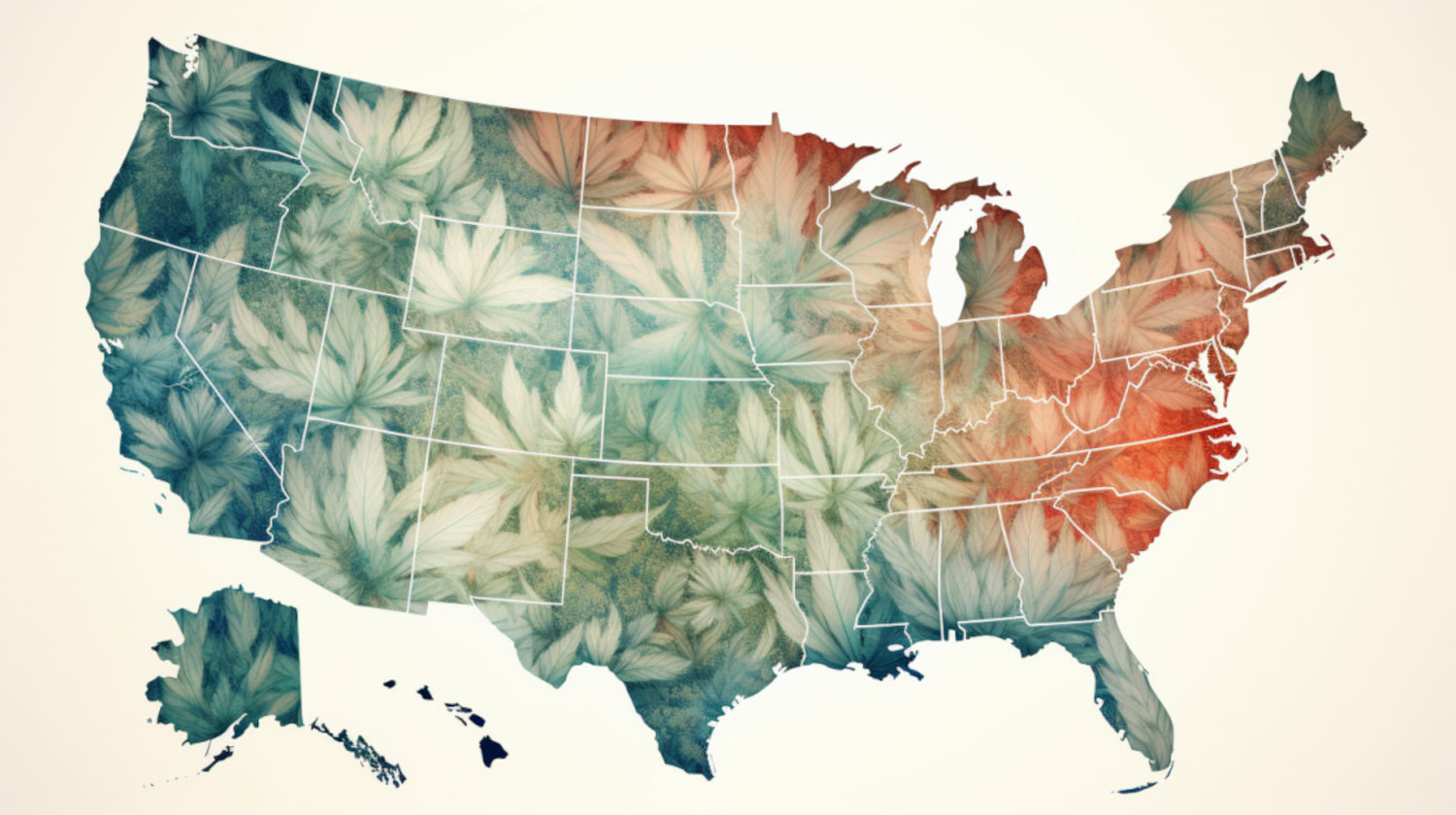In This Article
Ballot measures to legalize the recreational use of cannabis in three states failed to gain enough votes to pass in Tuesday’s election, leaving the number of states that have legalized the plant for use by adults at 24.
In Florida, a majority of voters (nearly 56%) supported Amendment 3, according to the New York Times, which would have legalized the recreational use of cannabis in the Sunshine State. However, the measure failed to garner the 60% of votes cast needed to pass the proposal into law. Amendment 3 failed despite support from Donald Trump, who was elected for a second term on Tuesday, carrying his adopted home state of Florida with 56% of the vote, according to the Associated Press.
Under Amendment 3, adults aged 21 and older would have been permitted to possess up to three ounces of cannabis. The ballot measure also would have allowed the state’s current providers of medical cannabis, which was legalized in 2016, to grow and sell cannabis to all adults aged 21 and older.
Amendment 3 was opposed by Republican Gov. Ron DeSantis, who used state resources to fund a campaign against the measure. Campaign ads characterized the measure as a poorly worded constitutional amendment that could likely never be repealed, despite any unintended consequences.
Smart and Safe Florida, the group backing Amendment 3, acknowledged that the measure had failed to pass in a statement released on Tuesday evening.
“Tonight, a strong majority of Floridians voted in support of legalizing recreational marijuana for adults,” the campaign said in a press release. “While the results of Amendment 3 did not clear the 60 percent threshold, we are eager to work with the governor and legislative leaders who agree with us on decriminalizing recreational marijuana for adults, addressing public consumption, continuing our focus on child safety, and expanding access to safe marijuana through home grow.”
With Amendment 3 failing to pass, Florida residents will need a medical card to legally obtain and use cannabis products.
Dakotas Also Reject Legal Cannabis
Voters in North Dakota and South Dakota also declined to legalize recreational cannabis as initiatives in both states failed to attract majority support.
In North Dakota, Measure 5 was voted down after receiving only 47% of the vote, according to a report from the North Dakota Monitor. Had it passed, the initiative would have legalized cannabis for adults aged 21 and older and established a framework for regulated sales of recreational cannabis. North Dakota voters legalized medical cannabis in 2016.
The defeat of Measure 5 marks the third time in six years that North Dakota voters have rejected an initiative to legalize the recreational use of cannabis. Pat Finken, chair of the Brighter Future Alliance, a group that campaigned against Measure 5, said he hopes the issue of legalizing recreational cannabis has been settled in North Dakota.
“Once again, the voters of North Dakota have wisely rejected an attempt to legalize recreational marijuana,” Finken said late Tuesday. “They understand that today’s marijuana is not safe and legalization will only add to the addiction and mental health crisis already punishing North Dakota families.”
Initiated Measure 29 in South Dakota also failed to pass muster with voters in Tuesday’s election, with less than 45% of voters supporting the proposal, the New York Times reported on Wednesday. Under the proposal, adults aged 21 and up would be allowed to possess up to two ounces of cannabis flower and grow up to six cannabis plants, with a cap of no more than 12 plants allowed per household.
In 2020, South Dakota voters approved a constitutional amendment to legalize both recreational and medicinal cannabis that was later overturned by the courts for violating the state’s single-subject rule for ballot initiatives. A separate medical cannabis measure passed the same year, however, led to the establishment of the state’s current medical cannabis program.
Learn more about state cannabis laws and regulations, and sign up for NuggMD's Weekly Sesh newsletter for the latest cannabis news, consumer tips, and recommendations.
The information in this article and any included images or charts are for educational purposes only. This information is neither a substitute for, nor does it replace, professional legal advice or medical advice, diagnosis, or treatment. If you have any concerns or questions about laws, regulations, or your health, you should always consult with an attorney, physician or other licensed professional.




